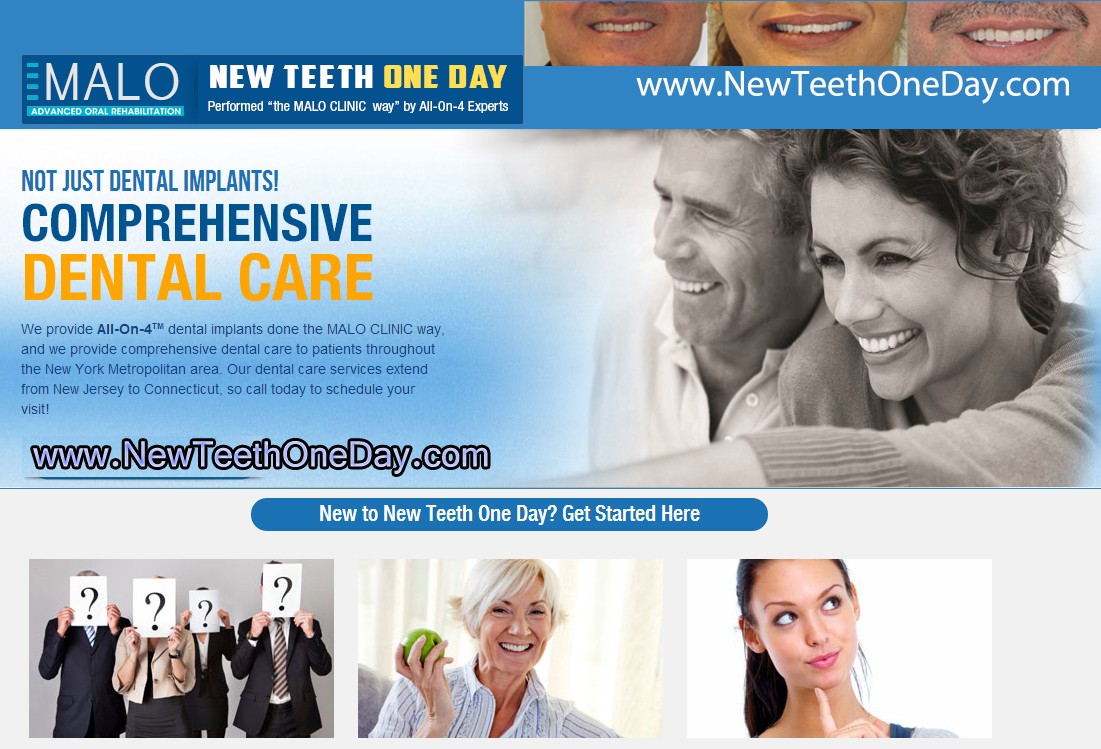This three-part article series explains what gum disease is and the various signs and symptoms it comes hand-in-hand with. We also explore patients’ various treatment options.
Periodontal disease – peri meaning “around” and dontal “the tooth” – is a pervasive oral disease that affects a staggering percentage of the American population. As much as 80% of New Jersey residents have some form or stage of this disease and it explains, in the majority of cases, just why the rate of tooth loss is so high in this country. Avoiding tooth loss and the need for dental implants, therefore, comes down to three important things:
1. Good oral hygiene and preventative care,
2. Recognizing the signs and symptoms of gum disease,
3. Seeking prompt treatment.
In this three-part article series, the New Jersey dental implants professionals will be helping us with point # 2 by explaining how periodontal disease frequently presents and what can be done to halt the progression of this very destructive condition.
What is Periodontal Disease?
 Periodontal or gum disease is an advanced bacterial infection of the gums and the supporting structures of the teeth. It is caused by a lack of proper at-home and professional oral hygiene and comes hand-in-hand with risk factors such as:
Periodontal or gum disease is an advanced bacterial infection of the gums and the supporting structures of the teeth. It is caused by a lack of proper at-home and professional oral hygiene and comes hand-in-hand with risk factors such as:
1. Tobacco-use
2. Certain diseases (diabetes),
3. Periods of hormonal fluctuations (menopause and pregnancy),
4. Excessive alcohol intake,
5. A diet high in sugar,
6. Certain chronic medications.
Even your genetic heritage and gender can leave you at a greater risk of developing periodontal disease, especially without adequate preventative dental healthcare. While there are dental implant procedures designed to give patients who have lost most or all of their teeth (or who have been diagnosed with a “terminal” or “failing dentition”) new teeth in one day, prevention is always better and cheaper than cure.
How Does Periodontal Disease Progress?
Gum disease begins as a well-known condition called “gingivitis,” which is characterized by an inflammation of the gums.

“Plaque, a sticky white substance consisting of bacteria, forms in the oral cavity throughout the day and this is essentially unavoidable,” say dental implant surgeons in New Jersey. “Without frequent and thorough brushing and flossing and without regular visits to the oral hygienist for a professional clean, plaque hardens to form tartar. Your gums don’t like this and they respond by becoming inflamed and swollen. At this stage, the disease is typically diagnosed as gingivitis.”
“Over time, without professional intervention and good home oral hygiene efforts, gingivitis is allowed to progress. Oral bacteria produce acidic by-products that erode away at the dental enamel forming cavities, which allow for further decay. This acid also destroys the ligaments attaching the gums to the teeth, which enables bacteria to migrate into the natural pockets surrounding the teeth, essentially deepening them. Eventually, deep pockets of bacteria collect around the tooth roots and it is at this stage that a person will likely be diagnosed with gum disease.
“It is also at this stage that the disease is unlikely to be halted without professional help. Tooth loss is a typical consequence of untreated gum disease and while we can give those who have been determined candidates new teeth in one day, we won’t proceed with dental implant treatment until health has been restored to the oral cavity,” explain dental implant professionals in New Jersey.
Stay Tuned for Part 2
To find out more about the signs and symptoms of gum disease and the treatments for this condition, stay tuned for the second installment of this three-part article series.

 sically and in social situations.
sically and in social situations. “One of the greatest problems with diabetes is that it renders patients more vulnerable to gum disease and less able to fight off the kind of bacterial infections that lead to it,” explains a new teeth Professionals in Rutherford NJ. “These patients might initially experience gingivitis, which is the beginning stage of gum disease with symptoms that might include swollen, inflamed and spongy gums that easily tear and bleed when brushed or flossed. If allowed to progress, however, the infection can migrate deep down into the soft tissue surrounding the tooth roots, allowing deep pockets of bacteria and bacterial wastes to accumulate.”
“One of the greatest problems with diabetes is that it renders patients more vulnerable to gum disease and less able to fight off the kind of bacterial infections that lead to it,” explains a new teeth Professionals in Rutherford NJ. “These patients might initially experience gingivitis, which is the beginning stage of gum disease with symptoms that might include swollen, inflamed and spongy gums that easily tear and bleed when brushed or flossed. If allowed to progress, however, the infection can migrate deep down into the soft tissue surrounding the tooth roots, allowing deep pockets of bacteria and bacterial wastes to accumulate.”




